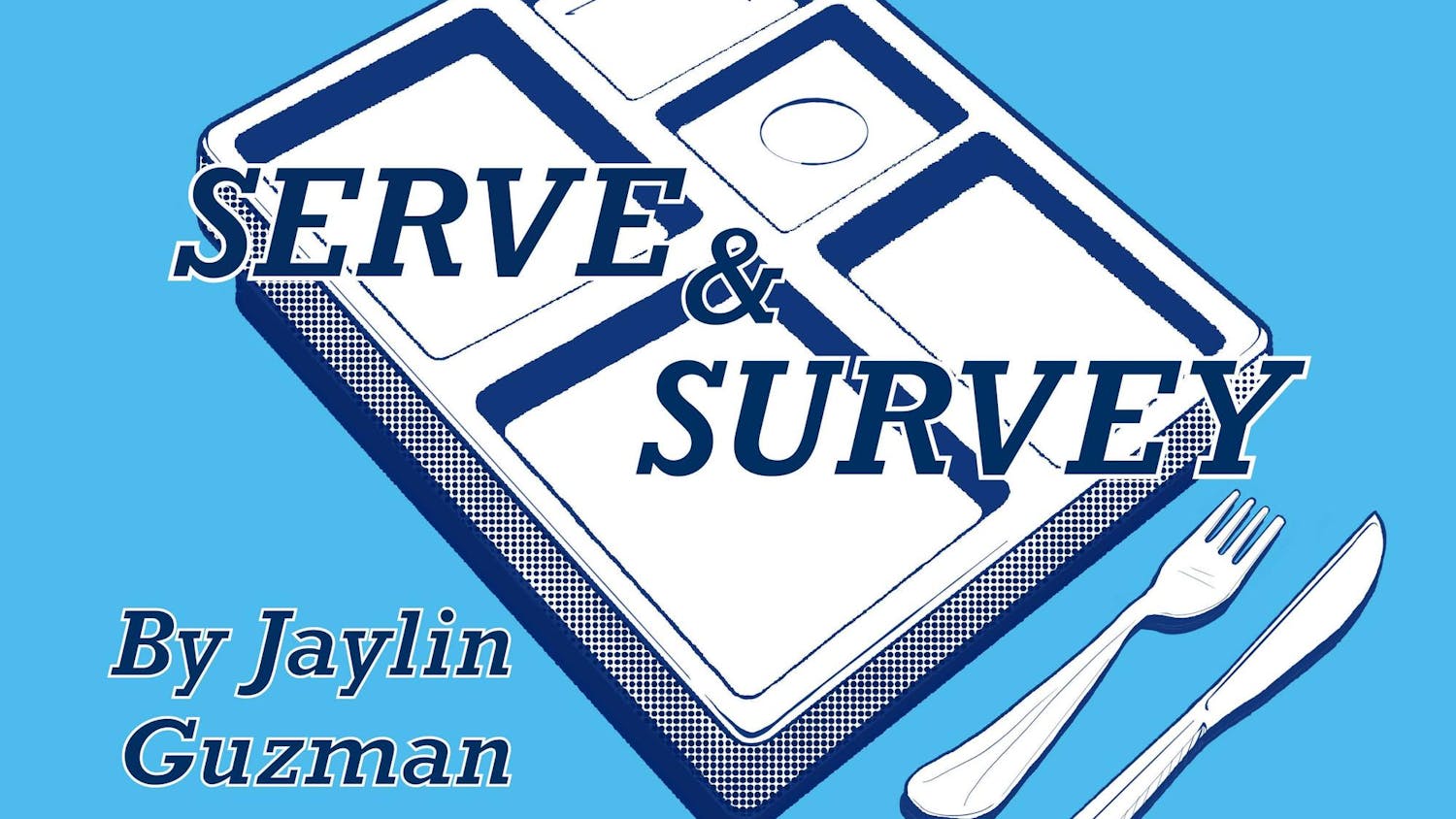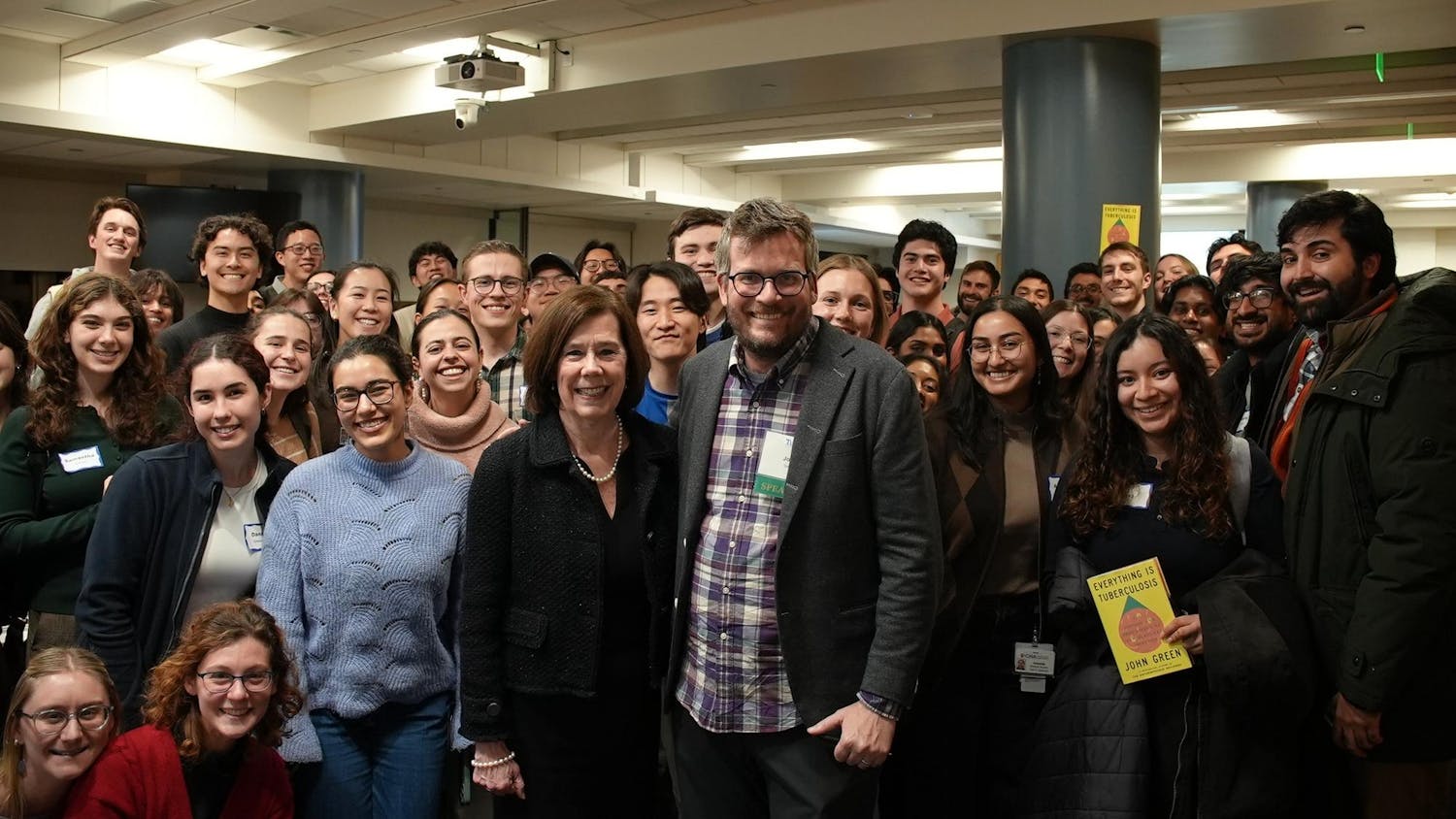Among the quirks of Boston lies a group of people who make their own, independent publications -- by hand -- and distribute them to a small number of other people. These publications are called zines, and although they are not unique to the area, the Boston Zine Fest Collective (BZF) is looking to increase the zine's popularity.
This past weekend, BZF, which consists of members Sara Bear, Sylvia Kim, Peter Loftus, Brittany Mitchell and Sarah Rugiero, hosted its first annual zine fest in Somerville, catering to artists and aiming to increase the outreach of zine publications. The festival was held Oct. 11-12 at the Washington Street Art Center and at the Aeronaut Brewery, bringing workshops, zine panelists, zine collections and exhibitions to the Somerville/Cambridge area.
According to Bear, zine publications are usually created by using screen-printing or photocopiers. In the do-it-yourself (DIY) and punk subcultures, zines have gained popularity among those looking to create more individualized art and to share their ideas within the relatively small zine community. Since zines typically have a very limited number of copies through distribution, establishing a community of readers is particularly important in finding an audience.
The collective began organizing the event last April in order to cater to people interested in zine publications as well as to artists and authors looking for opportunities to showcase their work and interact with other "ziners," according to Mitchell.
“For as big of a city as Boston, zines aren’t as big here as in comparably sized cities,” Mitchell said. “That was something we really saw as a hole in the zine culture around us and wanted to address."
The collective scheduled a two-day event that was free and open to the public, including local, national and international 'zine-sters' exhibiting and selling works, as well as hosting workshops, a panel and a scheduled reading program.
On the first day of the festival, the collective organized a discussion titled "Grrl Zines: A Discussion on Feminism and Independent Media," a screen-printing and color press workshop led by Ink Marks and a panel titled "The Personal Narrative in Zines: A Panel," all followed by readings from various zine artists. This section of the festival covered a variety of topics including autobiographical comics and fiction, Boston's punk scene, sexualized illness, chronic illness, gender stereotypes and struggling with and recovering from eating disorders.
The panelists and readers gave insight into independent media publications and generated discussion about a variety of topics concerning zines and DIY culture.
One of the panelists, Ponyboy Violet, centers their zines on an autobiographical experience in struggling and recovering from anorexia while identifying as a radical queer person.
“I write about DIY eating disorder recovery and I had anorexia really acutely for a decade and I never thought I would get over it,” Violet said. “I wanted to put it out there in case there is someone out there in a hospital or wherever they are, thinking that they are probably going to die and tools aren’t working. I think it’s a pretty specific audience, and most people who come to my table, this isn’t what they struggle with and they move on. But ... it feels really amazing to be like, 'oh, that’s a narration of some of the things that I’ve never gotten to talk about with someone who could feed that back to me.'”
The application process for vendors and tablers was open to all who would accord to BZF’s Safer Space policy. According to Mitchell, as a nonhierarchical collective and in an effort to create an inclusive environment for both participants and attendants, BZF’s five members collaborated in the creation of a Safer Space policy to respect the opinions and beliefs of others, even views that differ from their own.
By creating this policy, the festival was made accessible to people of all demographics and identities, revealing one of the signature aspects of tolerance within zine and DIY culture, as many topics are not covered by mainstream media or are often overlooked and not addressed, Mitchell added.
“It’s a very private thing,” she said. “It’s like we are all on zine island, and there's a bunch of us that don’t know about each other ... I thought there weren’t a lot of zine people in Boston, but when we put out the proper submissions, people came out of the woodwork like no other.”
The 2014 Boston Zine Festival hosted around 60 artists to showcase their work in Aeronaut Brewery on Oct. 12 during the tabling session. Through these exhibitions, they were able to share ideas, sell -- or trade -- their zines, exchange information about techniques and host workshops. Zine publications have a variety of different themes, according to Bear, who is also a comic artist.
“There is a very human component to it, to be able to pick up something that someone put a lot of time and energy into, and then have a conversation with that person about their creation,” Bear said. “That could be a really powerful thing. Some of these topics that people write about in Zines can be really heavy, or some of them could be lighthearted. I think that there is that human connection there.”
Zine festivals within Boston have been very limited in the past, and the BZF is striving to make sure the zine enthusiasts within Boston are able to meet and exchange ideas and information, Bear said. The mission of the collective varies among its members, but thematically centers around increasing outreach and providing a space for local artists and fans to interact.
“I think the most important thing is not the buying and the trading, but the exchange and exposure of ideas,” Bear said. “For me it’s expanding zine and DIY culture, the idea that you can do something yourself. I think that zines personally are a great way to give a lot of marginalized groups a voice, because at the end of the day, all you need is a piece of paper and you can take it to a photocopier and put your ideas out there.”
Open to all ages and demographics, BZF hopes to foster a larger community of "zinesters" within the Boston area, to cater to their needs and in the future, establish the Boston Zine Fest as an annual event.
“That’s our central focus in doing this,” Mitchell said. “It’s really important for us to keep this around for sure. Boston needs something related to zines that has staying power. We fully plan on being that.”
Boston Zine Fest showcases DIY culture, marginalized voices

Members of the zine literary community gathered for the two-day Boston Zine Festival.





